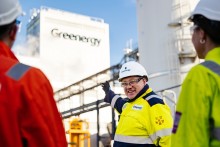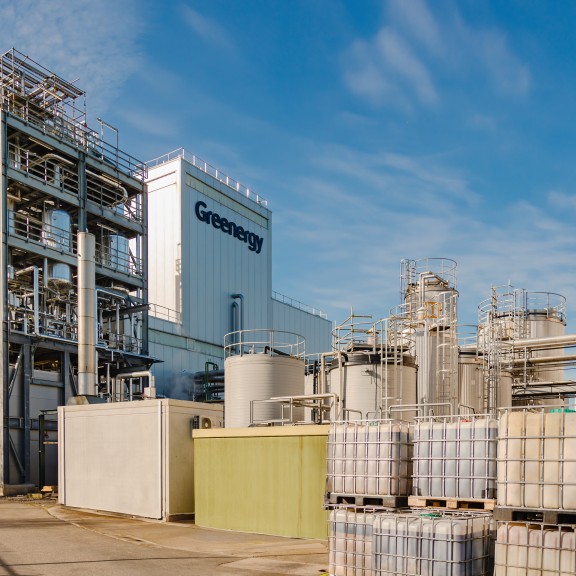

Greenergy increases biodiesel production capacity and feedstock capability
Last January Greenergy announced completion of its upgrade to the biofuels plant in the port of Amsterdam. Due to this upgrade, production capability has increased by as much as 25 percent, and the plant can now process more diverse feedstocks to meet the rising demand for waste-based biofuels.
Greenergy is a leading manufacturer of waste-based biodiesel, with three plants, one in Amsterdam, along with Immingham and Teesside in the UK. Greenergy is a supplier and distributor of transportation fuels and the largest importer and supplier of road fuels in the UK. Greenergy also supplies road fuels in Ireland and Canada, with offices in the USA, Singapore and Dubai.
The working of a biodiesel plant
Andy Bann, Plant Manager: “We predominantly source waste oils and fats from around the world, including the Netherlands, to use as feedstock. When the feedstock first arrives on site, a sample is taken to ensure it complies with our specifications. That feedstock then goes through a number of physical, distillation and chemical processes to make biodiesel. We clean up the feedstock to remove impurities and to prepare it for processing. From here, the purified oil is mixed with a reactant and a catalyst to produce biodiesel. Biodiesel can be blended with normal diesel to reduce carbon emissions of our transport sector. Electrification is already playing a role in the energy transition particularly for passenger vehicles, however other vehicles – such as heavy goods vehicles - are more difficult to electrify. As gasoline and diesel vehicles will remain on the roads for some time, we need to look at other readily deployable options to reduce emissions – such as biofuels. There is also increasing demand for biofuels in other transport sectors, such as marine and aviation, as they are an affordable, proven technology to reduce emissions. Therefore, globally demand is increasing. Here in Europe, the Renewable Energy Directive requires biofuels to help cut emissions and incentivising the most sustainable and lower carbon biofuels.”
Why Amsterdam is a good location for a biodiesel plant
Andy Bann: “In 2018 we acquired the Amsterdam plant. It had been designed to process fresh vegetable oils but was never commissioned. Having successfully converted and updated the plant to process a range of waste oils, in 2019, we saw an opportunity to improve the efficiency of the plant. Amsterdam is an ideal location, because it is a hub for imports from around the world, a major trading center, along with great access to a strong workforce. Our plant location within the port is perfect, given the tankage and multiple jetties that can receive barges and cargos of all sizes. We also have excellent cooperation with our neighbors, Evos Amsterdam. They store and transship the feedstock for the biofuels plant (waste oils and fats) and run down products (biodiesel).”

Always looking for improvements
Andy Bann: “Greenergy is continuously looking at how we can operate more efficiently, and increase our output to meet the increasing demand for biodiesel. We also transferred knowledge from our UK plants to increase the ability to process more challenging waste feedstocks. This included an extra oil purification step prior to the biodiesel process. A key part of this project was to ensure all engineering solutions considered energy reduction and integration first. The new process equipment was integrated in the main plant and has made our energy use more efficient. We did encounter some delays in the project due to the impact of the pandemic, material availability and cost.”
Developments and opportunities
Andy Bann: “As a company, Greenergy has committed to carbon neutral operations by 2035, with a 50% reduction by 2030 against a 2020 baseline. So we are continuing to progress a number of projects to support this ambition. Globally the demand for biofuels is increasing, but we are also seeing increasing demand for high biodiesel blends that can be used by heavy goods vehicles. Within our own in-house haulage fleet in the UK we have adopted high bio blends to further reduce our own emissions.”